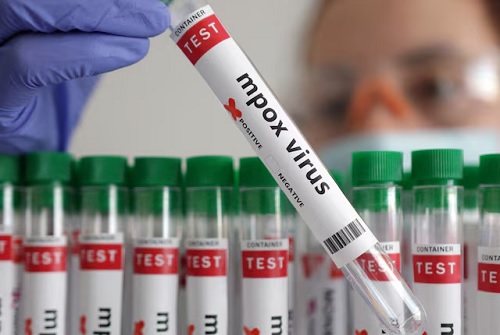
Fear and contagion are spreading in Kamituga, eastern DRC, the epicenter of the current mpox outbreak. It is where the newest variant of the virus was discovered last year.
Inside the Kamituga general hospital, Diego looked on as health workers tended to his young son, Emile.
“I had a lot of ignorance because I didn’t believe that children could get this disease. I thought it was only for adults, and I didn’t know that there were children here getting treated. When I saw children here, I was scared.”
Regarded as South Kivu province’s commercial hub, the gold mining town of Kamituga, of some 300,000 people, attracts miners, sex workers and traders who are constantly on the move.
Since the outbreak began, nearly 1,000 people in Kamituga have been infected and at least eight have died, including four children.
Covered in lesions, 2-year-old Emile watched silently as healthcare workers poured water over him to lower his temperature.
Symptoms
According to the WHO, common symptoms include a rash which may last for 2–4 weeks. This may start with, or be followed by, fever, headache, muscle aches, back pain, low energy and swollen glands.
The goal of treating mpox is to take care of the rash, manage pain and prevent complications.
Kamituga, one of the hardest hit towns in the province, has an average of five new cases daily at the Kamituga hospital, which is regularly near capacity, yet health officials say the virus is more widespread than what’s being documented, with a lack of access to rural areas and the inability for many to seek care.
Clad 1-b is wreaking havoc in eastern DRC is infecting people faster and more easily than previous epidemics.
A doctor with the NGO that manages the mpox response in the Kamituga general hospital, describes the most affected group.
“The majority of cases are young people, from 14-year-olds to 35-year-old adults. You also have kids under five years old who are unfortunately affected,” Dally Muamba says.
Getting an mpox vaccine can help prevent infection. It is recommended for people at high-risk of getting mpox.
DRC has received over 200,000 vaccine doses in recent weeks and announced that vaccination rollout will start in October.
Authorities say 3 million doses are needed to end the outbreak in the vast country.
Source: africanews.com











